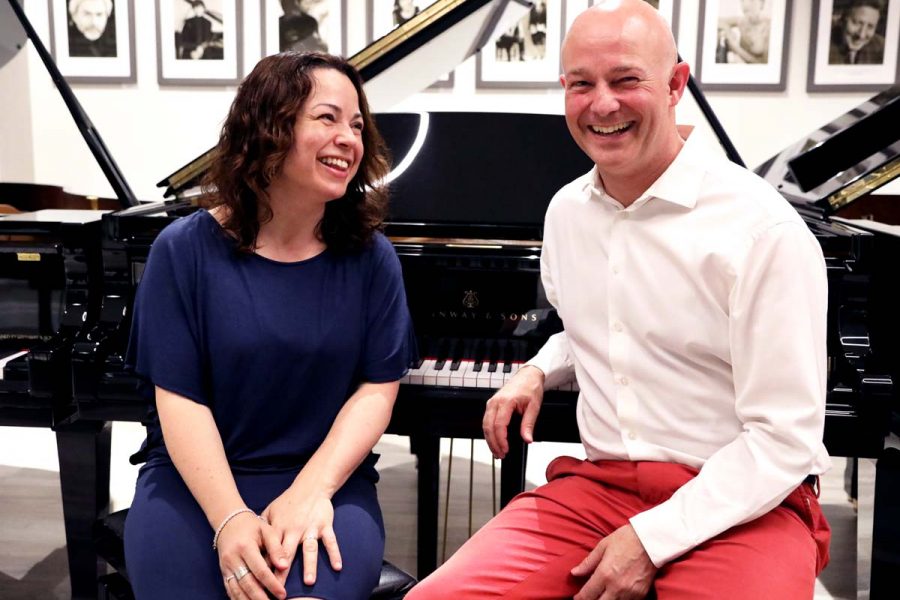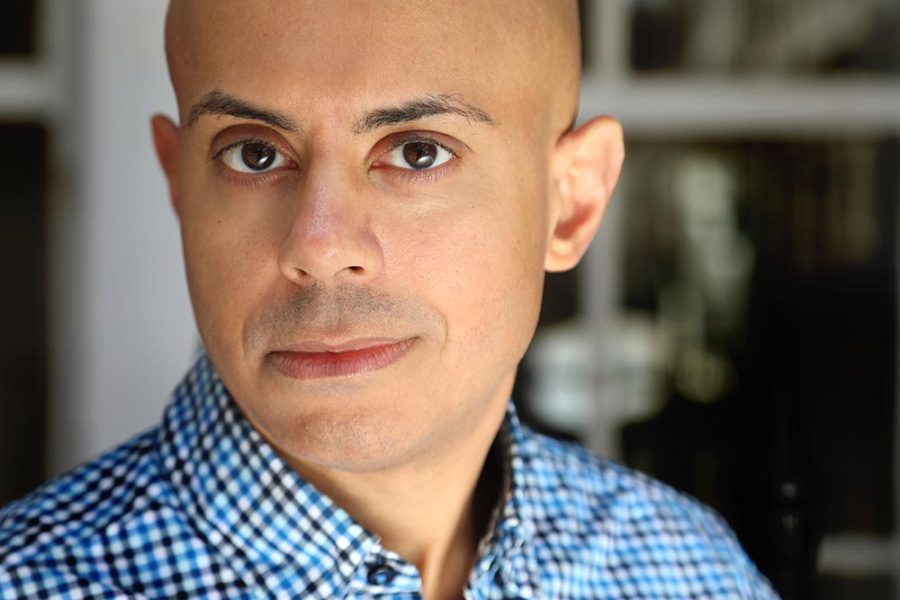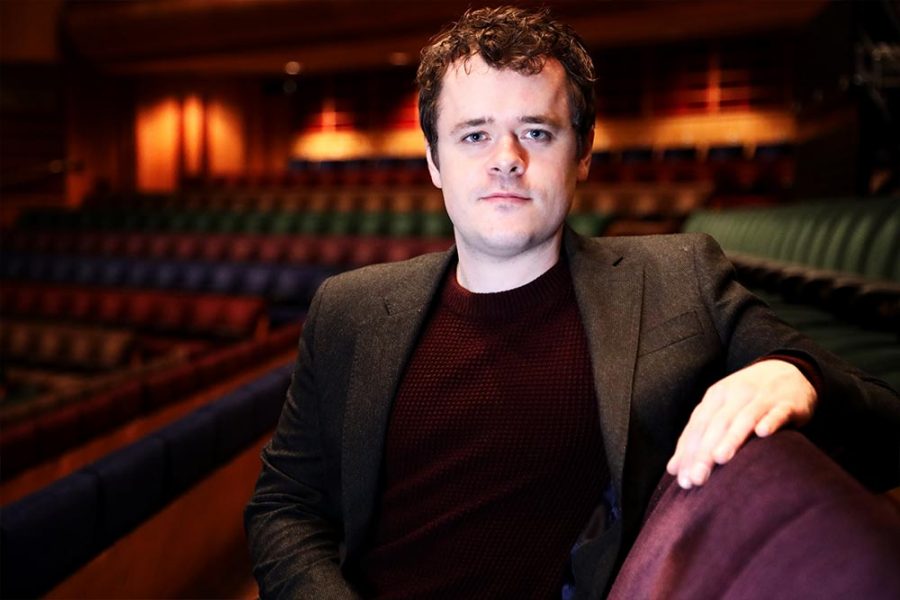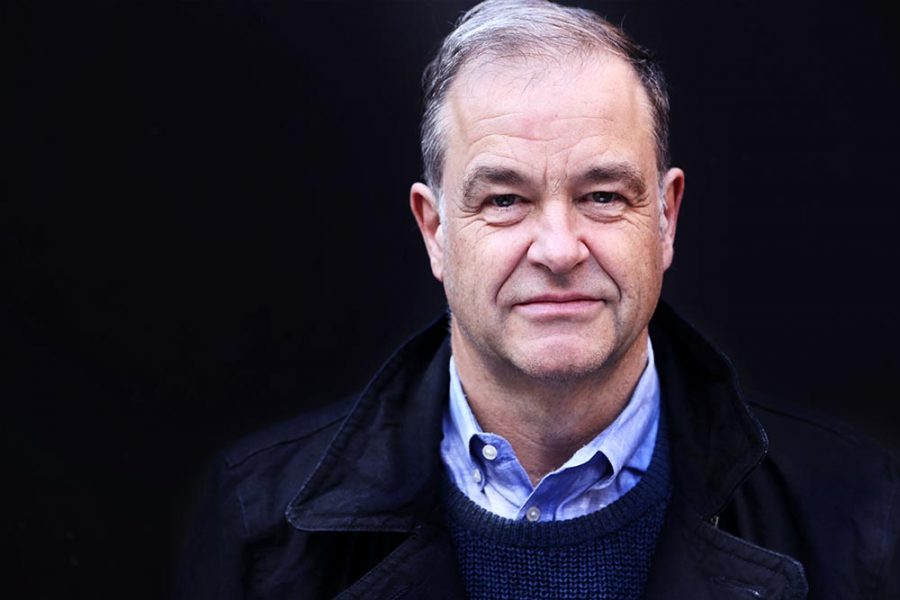Finding Your Place Within the Musical Crowd: Michael McHale

February 2016
Words by
Emer Nestor
Photos by
Frances Marshall
Belfast-born Michael McHale has established himself as a formidable presence within the current circuit of classical pianists. Having cut his performance teeth at The Royal Irish Academy of Music under the tutelage of Dr John O’Conor and Professor Réamonn Keary, McHale went on to study music at Cambridge University and took lessons with Christopher Elton at the Royal Academy of Music.
Following his success as prizewinner at the Camerata Ireland Musician of the Year Competition in 2004, McHale went on to win the Camerata/Accenture award in 2005, and the Brennan and Field Prizes at the 2006 AXA Dublin International Piano Competition. In 2009 he won both the first prize and the audience prize at the Terence Judd/Hallé Award finals. A vibrant performing career as a solo recitalist, concerto soloist and chamber musician soon followed. McHale found himself performing on the stages of some of the world’s foremost concert venues including: Suntory Hall (Tokyo); Lincoln Center (New York); Symphony Hall (Boston); Wigmore Hall (London); the National Concert Hall (Dublin); Konzerthaus (Berlin); Pesti Vigadó (Budapest); and the Ushuaia (Argentina) and Tanglewood Festivals (Boston).
Within the sphere of concerto playing, McHale has performed with the Minnesota, Hallé, Bournemouth Symphony and Moscow Symphony orchestras, the Teatro Colon Orchestra, Discovery Ensemble in Boston, the London Mozart Players, the RTÉ National Symphony Orchestra, Ulster Orchestra, the Irish Chamber Orchestra, and Camerata Ireland in repertoire ranging from Mozart and Beethoven to Gershwin and Rachmaninov. McHale is constantly in demand as a chamber musician, collaborating with various artists and groups including Sir James Galway, Patricia Rozario, Ensemble Avalon and Camerata Pacifica. His artistry has been broadcast across television and radio channels throughout Europe, Asia, North and South America. McHale’s discography includes recordings for Chandos, RTÉ lyric fm, Louth CMS, Lorelt and Nimbus Alliance.
Final Note met with McHale in between recording sessions at RTÉ and the National Concert Hall in Dublin to chat about piano competitions, writing cadenzas, the importance of finding a good management team, the release of his sixth duo album with Michael Collins, and his forthcoming recording of Irish piano concertos by John Field and Philip Hammond.
Unlike in sport, artistic competitions will always be quite subjective...so it's important not to let competition successes or failures affect what you want to express artistically..."

Competition has played a prominent role in establishing your name as a pianist — what are your top tips for emerging pianists who are preparing for the competition circuit?
Although I had some successes in a few competitions when I was younger, which really helped me get some great performing opportunities and build a profile, I never did the rounds on the competition circuit. I really viewed them more as a necessary evil, rather than something that I particularly enjoyed! The main advice I would give to young pianists would be to view competitions as useful public platforms to impress audiences and industry insiders alike, and always to perform as you would aspire to in concert, rather than getting too hung up on the competitive side of things (however helpful to your career and bank balance it might be to win prizes)! Unlike in sport, artistic competitions will always be quite subjective, and are a means to an end rather than an end in themselves, so it’s important not to let competition successes or failures affect what you want to express artistically, because that will always be the most important thing in the long term.
Has your style of playing changed much over the past ten years?
I think my playing has probably changed quite significantly in some areas since my student days. I’ve broadened my repertoire a lot since then, performing more of the big romantic and twentieth-century works than I did in my teens, which has definitely helped me to develop a much broader range of technique and sound colours. Musically speaking, I don’t think my tastes have changed radically, though I guess they are always evolving gradually. Hopefully, I’ve become much more adept at communicating my ideas to audiences, which can only come from performance experience.
Do you still keep on top of technique with scales and exercises?
I much prefer to focus on using passages from whatever repertoire I’m studying as a basis for creating exercises to keep technical things ticking over, whilst also improving my playing of a specific piece of music; though there are some studies I find useful as well.
What is your process when preparing for a performance or recording session?
It’s most important to have all my practice and preparation done ahead of time. Then I try to get a good night’s sleep beforehand, and also try to be careful not to practise very much on the day of a concert or recording. I definitely find it helpful to save most of my energy for the main event! As a pianist, one of the most crucial things is to get to know the piano as well as possible in whatever time is available (anywhere from ten minutes to a couple of hours), to see what little adjustments need to be made to adapt to any particular characteristics or idiosyncrasies the instrument might have.
Do you write many of your own cadenzas or do you prefer to play it safe, depending on the composer?
I really enjoyed composing when I was younger, though it’s much harder to find the time these days—but I try to take advantage of any opportunity I can to exercise that side of things, and writing my own cadenzas is certainly one of those. I will often perform my own cadenzas in Mozart concertos—the key consideration for me is that proportionally the length of the cadenza is appropriate for the length of the movement—but beyond that, I think it’s good to be creative and have plenty of my own personality in there.

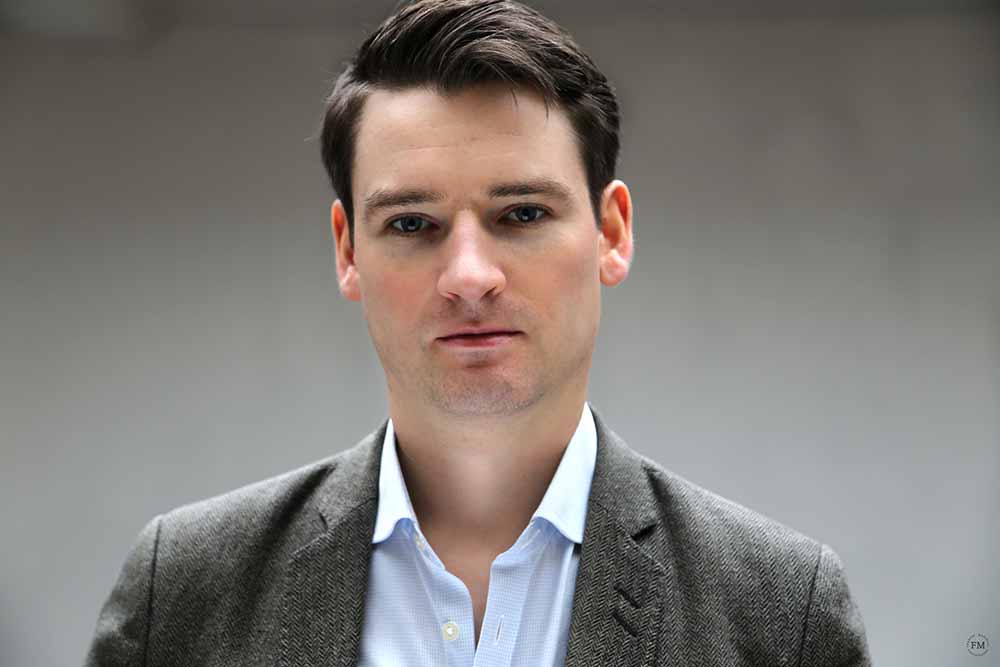


...perhaps the standout for me was a Yamaha CFX Series on which I made a recording in 2014 – I now wish that I could use it for every concert and recording I do!"

What score would you most like to be locked away with for a few hours?
That’s a difficult one—we pianists are spoilt by the bottomless pit of repertoire at our disposal…maybe one of the Rachmaninov concertos—plenty to keep me occupied in there!
Lengthy recitals and concerto performances can be exciting and often quite nerve-wracking — do you ever suffer from memory blanks and how do you deal with them when they creep into a performance?
I think all solo pianists will have had the experience of having concentration lapses in performance, to a greater or lesser extent, but it’s amazing how quickly self-preservation instincts can kick in. I’m fortunate thus far in my career not to have had any major issues in this regard (touch wood). However, when I’m learning a new score I always try and pinpoint sections that leave themselves more open to taking a wrong turn, and then I prepare a strategy to get back on course should the worst happen. It’s very important to be aware of it as a possibility when preparing to play music from memory. Ironically, I think that preparing yourself for the possibility of a lapse might actually reduce the chance of it happening at all.
With recent new piano models appearing on the market such as the Barenboim-Maene Concert Grand, the sleek Bogányi creation from Budapest and various hybrids from the workshops of Yamaha, do you think the instrument can be improved upon or should it be left as it is?
It’s great that piano manufacturers are constantly exploring new ways to improve the instruments they produce. I’ve played some beautiful pianos in recent years, by Steinway, Fazioli, Bösendorfer and others. But perhaps the standout for me was a Yamaha CFX Series on which I made a recording in 2014 – I now wish that I could use it for every concert and recording I do!
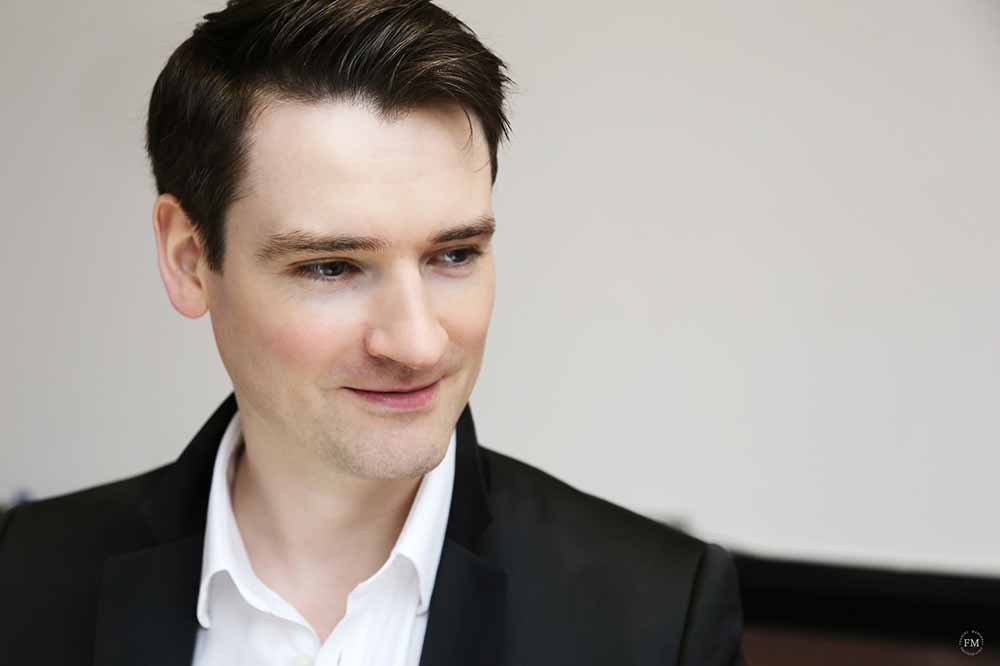


The classical music circuit is unequivocally awash with superbly gifted pianists — how do you stay relevant and at the same time stand out from the musical crowd?
It’s true that there are an amazing number of fantastic pianists around, which is wonderful for the concert-going public, and for keeping all of the pianists on their toes! I guess the key is to play to your own strengths. A conductor once gave me a great piece of advice, which was that it’s often more important to invest energy in further improving the things that are your natural strengths, rather than getting too preoccupied with all the things you feel you can’t naturally do so well. There is room in the world for many different types of pianist, with different approaches and repertoire preferences, so it’s all about finding your place.
How vital is a good management team within the performing industry, and what factors should a musician consider when deciding upon an agent?
Having a good manager is really helpful, and it can open doors that would otherwise remain shut. It’s hugely important to find the right one, as it’s a relationship that depends on having a shared vision. It won’t work out well if the manager has very different priorities and ideas from the performer about what direction their career should be heading. As one of my great teachers and mentors, John O’Conor, always reminded me: you’re always your own best agent, first and foremost!
Having any semblance of a personal life can be challenging when touring and performing around the world — how do you strike a balance between work and downtime?
It can be an issue during particularly busy patches—but I guess that could apply to many other careers too. I always try to do as much socialising as I can with family and friends when I’m back at home between tours to make up for the time that I’m away. Also, I enjoy returning to countries and cities that I’ve visited before, as I can catch up with friends I’ve made on my previous travels, dotted all around the place. It’s definitely not for everyone, but I have to say that I really enjoy it.
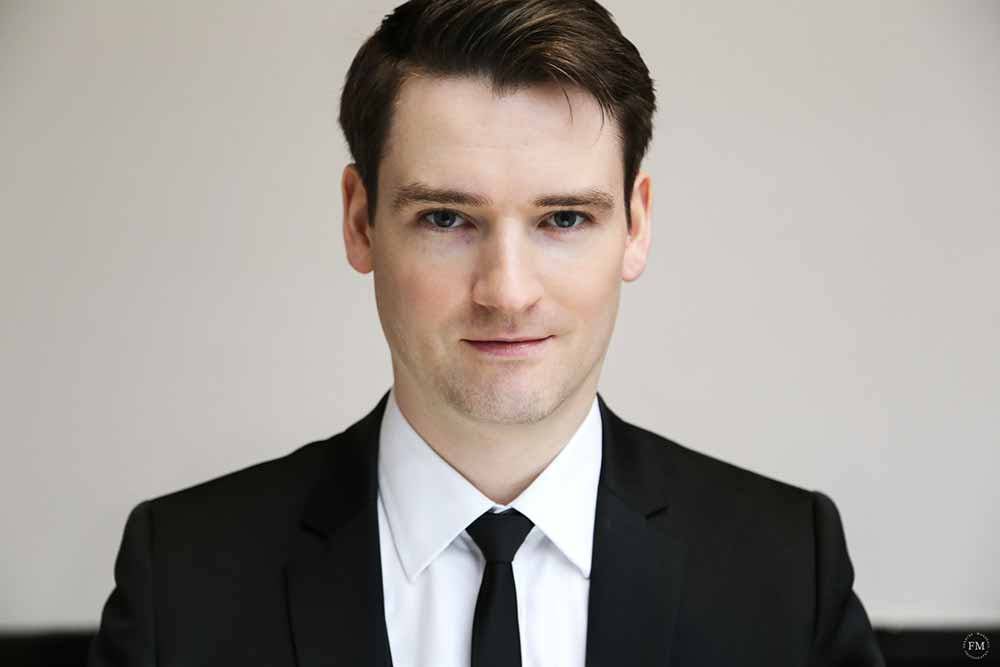

Tell us about your collaboration with clarinetist Michael Collins and your upcoming concerts together.
We’ve been working together for about 5 or 6 years, and it’s always a great pleasure every time—he’s one of the most natural and inspiring all-round musicians I’ve come across. We have some interesting projects coming up in the next few months, with duo recitals in England and USA, chamber concerts with his quintet London Winds, and some performances of Schubert’s ‘Shepherd on the Rock’ [Der Hirt auf dem Felsen D. 965] with Felicity Lott in Jersey and at Wigmore Hall with Lucy Crowe.
June 2016 sees the release of our sixth duo album together for Chandos, The Lyrical Clarinet, Vol. II, which features music by Schumann, Ravel, Debussy, Massenet, as well as three of my own arrangements for clarinet and piano of Nocturnes by John Field. The programming process for these recordings is becoming more interesting as we’ve now covered so much of the repertoire already—but we have some great ideas for future albums, so watch this space.
You have worked extensively with RTÉ in the past, how important is this relationship to you?
RTÉ have been wonderfully supportive of me over the years and I’m extremely grateful for all of the opportunities that they’ve given me. I’ve particularly enjoyed the opportunity to work with the RTÉ National Symphony Orchestra many times, most recently in concertos by Prokofiev and Beethoven, and also with RTÉ lyric fm, which gave me the chance to make my first chamber and solo studio CD recordings in 2008 and 2012.
Our most recent project together involves a collaboration with the NSO for another CD on the lyric fm label of Irish Piano Concertos by John Field and Philip Hammond (due for release in autumn 2016), which we completed recording with my good friend (and incredibly talented conductor) Courtney Lewis a couple of weeks ago in Dublin. This is my first album with orchestra and also my first time writing my own orchestral arrangement—the Field Concerto has no surviving slow movement, so I’ve arranged one of his solo nocturnes for piano and orchestra. It’s a very exciting one for me and I’m delighted with how everything has worked out. I must also mention that this project was made possible by a Major Individual Award granted by the Arts Council of Northern Ireland (thank you!!), and BBC Radio 3 get a big credit too for commissioning the Hammond Concerto for me last year.
What lies ahead for you over the coming months?
I’m looking forward to revisiting some of my favourite concertos in the coming months—Beethoven’s Emperor(which I’ve played quite a few times in recent years), Ravel’s G major Concerto and the Grieg (both of which I’ll be performing for the first time since I was a teenager, which should be interesting!). I’m excited to return to my alma mater, Emmanuel College in Cambridge, for the first time in several years to give a solo recital featuring Mussorgsky’s Pictures at an Exhibition—one of my favourite works.
I also have a few upcoming concerts in Ireland: on March 4th in Drogheda (featuring Schubert Impromptus from my recent solo piano album on the Ergodos label, as well as the Trout Quintet with Musici Ireland); on May 26th in Cork (marking the release of a new CD of works by Saint-Saëns and Fauré with cellist Brian O’Kane—we’ll also be joined by Michael Collins for the Brahms Trio too). A bit further ahead, I’m delighted to be returning this August to the Clandeboye Festival, where I played many times earlier in my career, and which is directed by another great mentor of mine, Barry Douglas, who has been a huge inspiration and support to me over the years. Internationally speaking, I’ll have a few trips back to the US, and my fourth visit to Argentina, where I love performing, as the audiences are so generous and the people so friendly—almost as much as the Irish!
For more information on Michael McHale see: www.michaelmchale.com
All images displayed in this article are subject to copyright.
Share this article


